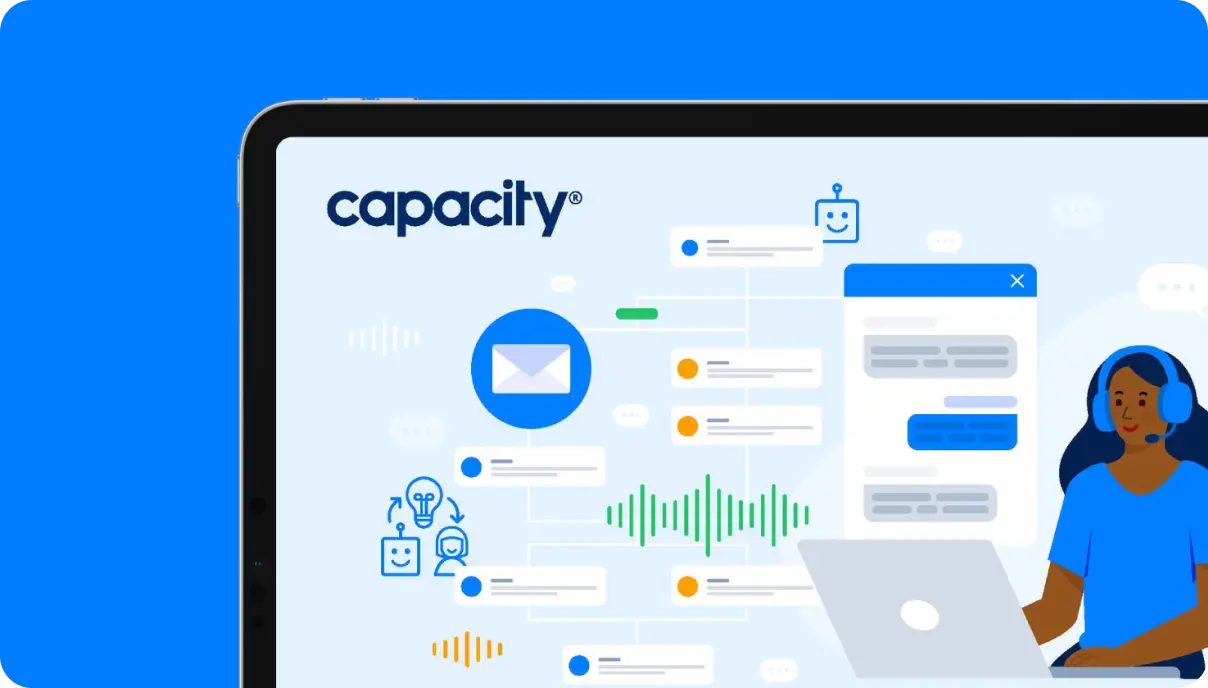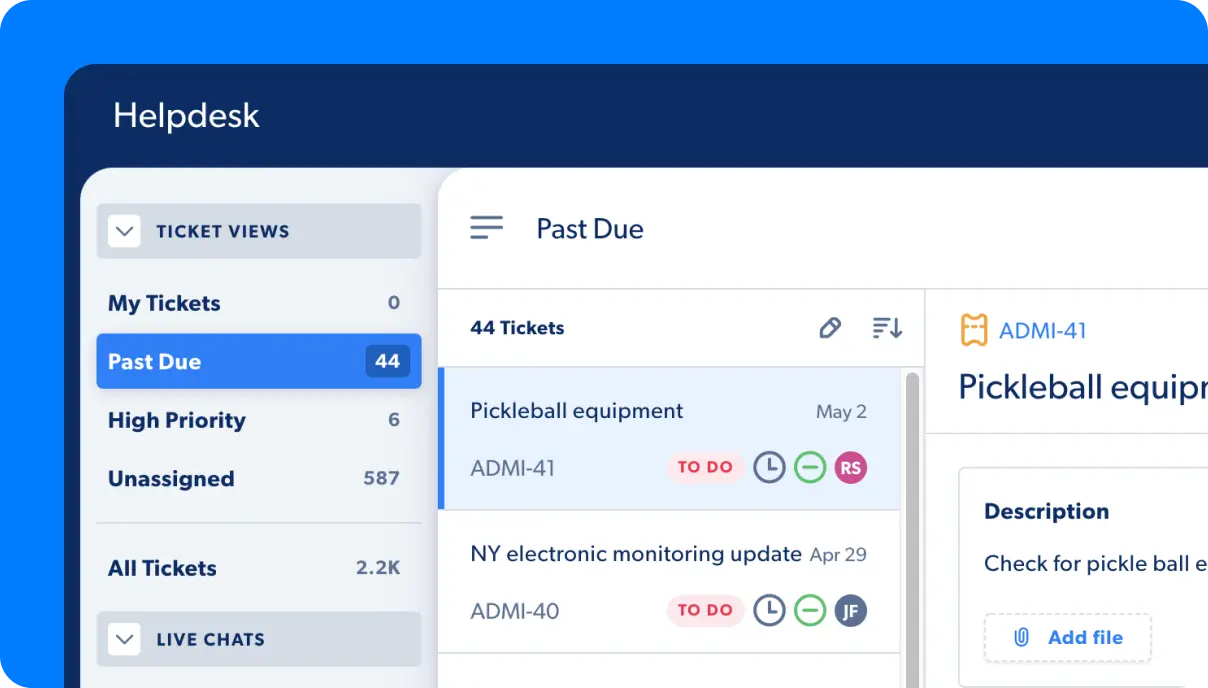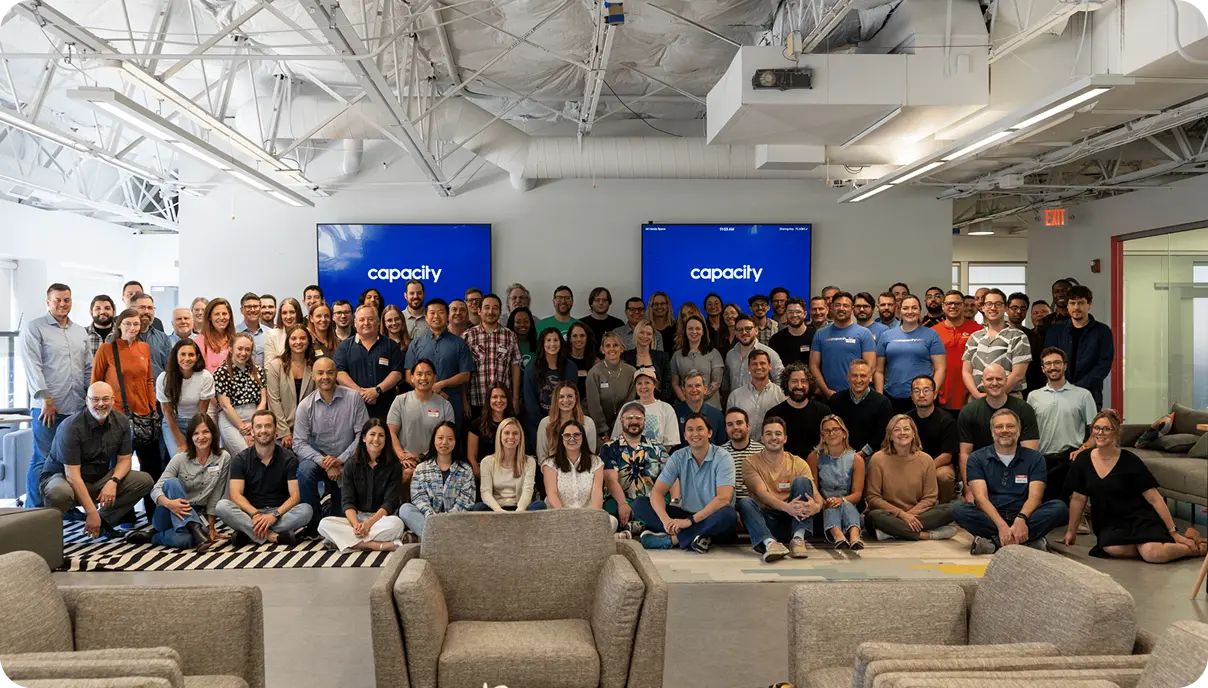Enterprise AI is often praised for the positive impact it has on an organization’s bottom line. However, it’s presence in the workplace alone enables more efficiency and productivity since it can exponentially increase communication among customers and employees alike. When used to automate processes, enterprise AI inherently improves the quality of work that teams put out.
Liberate quality information.
Regardless of the organization or industry, the first step to keeping customers and teammates informed typically involves setting up a knowledge base (consider a FAQ page or employee support documents). However, enterprise AI enables organizations to take knowledge sharing a step further by making critical data accessible through question-and-answer pairs via a chatbot interface.
With a traditional knowledge base, team members can access information, but they have to jump through hoops to find it. Too often, this means relying on coworkers, searching email threads, scrolling through miles of shared documents, etc. And regardless if a website has an FAQs section, customers won’t do too much digging if the information they need is not accessible in the first few clicks.
Enterprise AI takes the traditional knowledge base into the 21st-century by creating a completely proactive experience. AI can understand what the information in the knowledge base means and uses it to provide employees or customers with accurate answers to their questions.
Capacity’s AI-powered chatbot answers hundreds of questions from hundreds of users simultaneously, providing instant access to vital information—so, teams can spend less time regurgitating the same information over and over again, and more time connecting with customers who make a business possible.
In fact, Capacity is hard at work, helping inform the employees and members of West Community Credit Union and supplying the patients and staff of Total Access Urgent Care with a more informed experience. Instead of endlessly digging through documents to find the information they need, they just ask Capacity’s chat interface that lives on the website.
Deflect tasks and tickets.
The main goal of a helpdesk is to ensure that any end user is provided with information and support whenever they have an issue. However, the support team behind the helpdesk shouldn’t be tasked with sending canned email responses or answering repetitive questions. Enterprise AI can help resolve the repetitive and time-consuming tickets by automating them.
Whenever a customer has a question, they want an answer without having to send an email, create a customer support ticket, or wait for a response. Automating the level 0 questions that are available in a knowledge base only makes customers more willing to engage with a brand.
As FAQs become automated, teams are liberated to use their time and resources wisely and respond to concerns requiring more in-depth responses. When AI is responsible for these questions, key metrics are easier to meet. Not only is the team dealing with happier users (due to the fact that they have had a quality experience so far with instant knowledge) they also have fewer tasks to check off their lists. With fewer tasks, they have more time to strategize solutions and dedicate to the end user—meaning better results.
Customer support leaders turn to Capacity when they want to deflect incoming questions and tickets by offering a reliable, easy-to-use channel for customers to find answers to their questions and self-resolve their support issues. When teammates are in a bind, Capacity is also available to get an expert’s advice on a question.
Minimize steps.
In addition to supporting customers with answers and information, there are team members dedicated to supplying information, assets, and services to the entire organization. As stated earlier, automating and reducing tasks is a huge accomplishment. However, even when enterprise AI can’t completely handle an issue, it can alleviate some of the burden. This might simply mean reducing the time and steps it takes to resolve an issue.
Members of an Operations, IT, or HR team are great examples of teammates that have high levels of expertise but can get bogged down with tedious tasks. Because every task has a process, enterprise AI is effective in completing the manual and repetitive steps within each process and leaving the complex steps to the experts, which ultimately frees up time in their day.
Capacity uses enterprise AI in our new RPA Workflow feature. The following are just a few tasks that we automate for our customers:
- Collecting the applicant information (Guided Conversations).
- Sending an offer letter (Email Integrations with Gmail and Outlook 365).
- Approving the finalized offer (Workflow Approval).
- Ordering the laptop (Capacity Helpdesk).
- Answering new team member questions (Knowledge Base + chat).
- Scheduling a 1-1 with the supervisor (Calendar Integrations with GCal and Outlook 365).
- Sending the employee handbook (Capacity’s native Cloud Drive integration).
With the rise of enterprise AI comes a rise in soft skills.
Since AI enables teams to stop relying on repetition and hyper-focus to perform their duties, the ways that we think about “worker efficiency” are bound to adapt to the times. There are plenty of tasks that AI simply cannot handle. It’s up to the business space to leverage these roles and reconfigure the values promoted in the workspace. AI and the future of work are hinged to the responsibilities we deem fitting for team members.










































